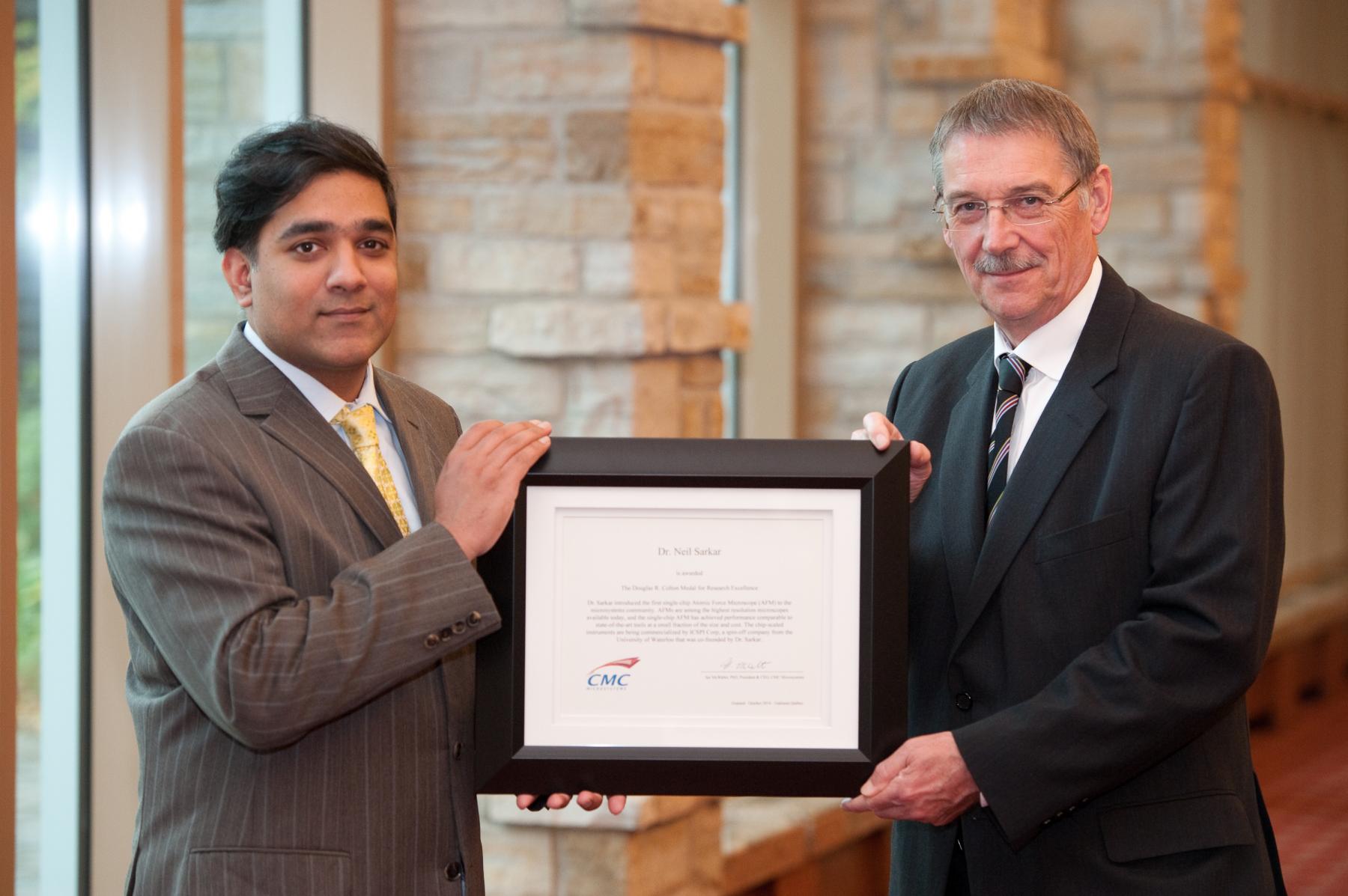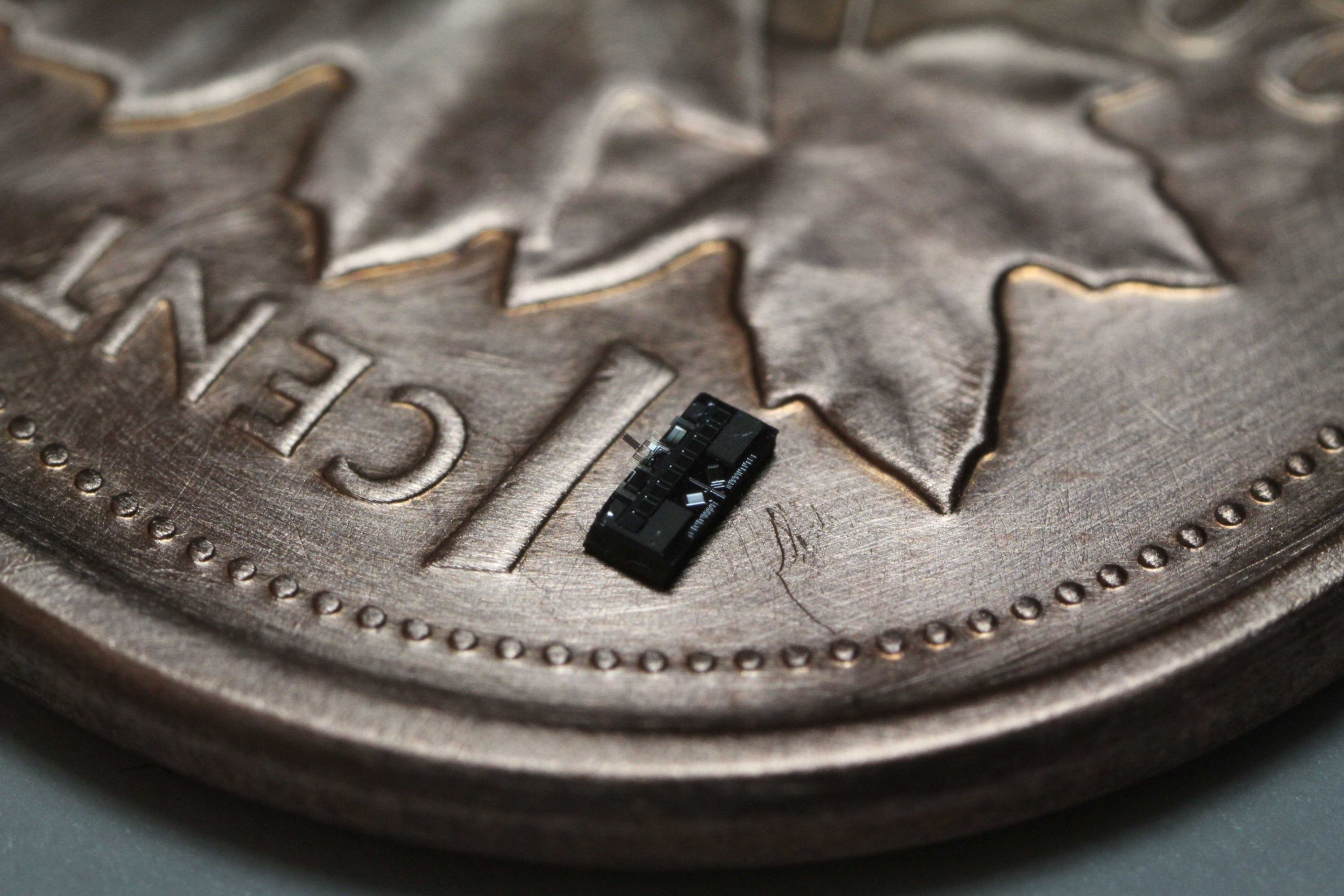An electrical engineering graduate and researcher at the University of Waterloo's Centre for Integrated RF Engineering has received a medal for excellence in research leading to innovative developments in microsystems and related technologies.
Neil Sarkar, left, was awarded the Douglas R. Colton Medal for Research

The first-of-its-kind, $1,000 microscope opens new possibilities in nanoscale research and manufacturing. Specifically, Sarkar sees manufacturers of CMOS chips, the very chips the microscopes reside on, benefiting from the technology.
“When making CMOS chips, every one per cent improvement in yield can represent a savings of $1 million a week to the company,” says Sarkar who completed all three of his electrical engineering degrees – BASc, MASc and PhD – at Waterloo. “Due to the size and flexibility, our microscopes may find faults very quickly and, therefore, improve yield rapidly and substantially.”
Re-engineered scanning probe microscopes
Traditional scanning probe microscopes – the highest resolution microscopes able to view individual atoms – are large, cumbersome instruments that cost about $100,000. When working at the nanoscale with items smaller than the wavelength of light – too small for light to even see – these microscopes become ineffective and new technologies are needed.
Sarkar responded to this need by taking the functionality of a desktop AFM and shrinking it onto a single chip – a chip substantially

He co-founded Integrated Circuit Scanning Probe Instruments (ICSPI) in 2008 with Raafat Mansour, a Waterloo electrical and computer engineering professor and Canada Research Chair who was Sarkar's doctoral supervisor. The company, which takes microscopes from research through production and commercialization, will launch the technology by shipping the first microscopes to customers before the end of the year.
In the future, Sarkar envisions many uses for the technology including an atomically precise manufacturing scheme, precise metrology for items such as contact lenses, using force curve sampling to detect malignant versus benign cells, and even introducing students to nanotechnology by bringing the inexpensive, accessible microscopes into high schools.
CMC Microsystems works with researchers and industry, providing commercial-calibre tools, systems, expertise, services, and access to world-class infrastructure for designing, prototyping, and manufacturing innovations in microsystems and nanotechnologies. CMC provides a path to commercialization of related technologies, and enables the development and sharing of new tools, methodologies, and processes to make researchers and industry more productive.